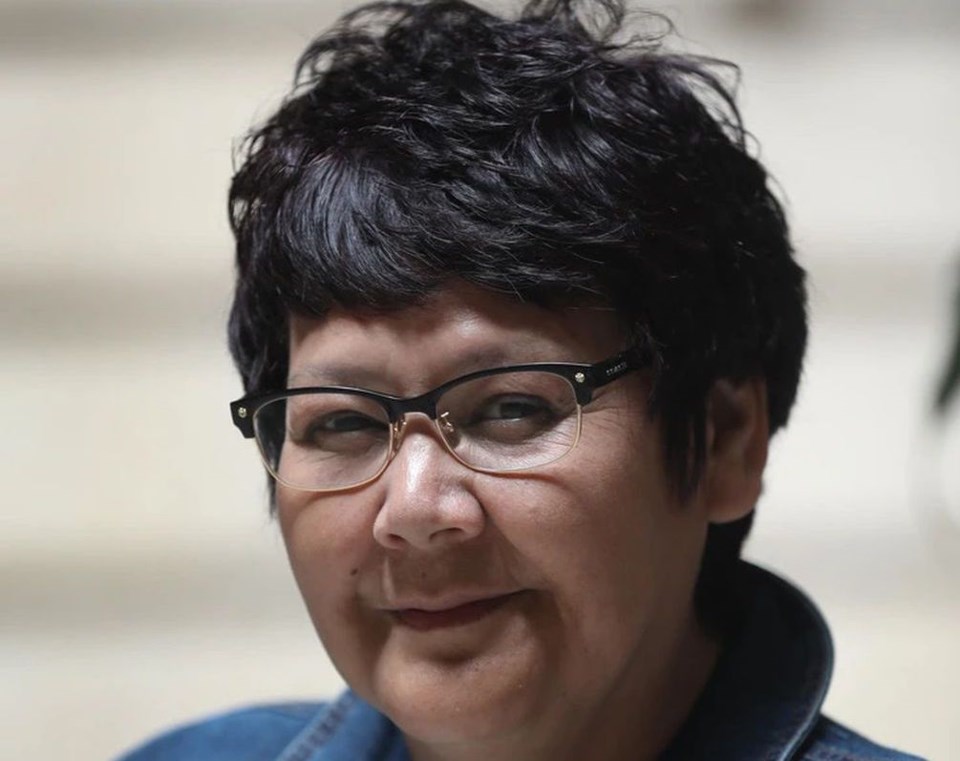Indigenous leaders in Manitoba are calling on the federal government to improve fire department services in First Nations communities after a fire that left two children injured and 49 people without a home as Indigenous people continue to be at greater risk to be killed by fire than non-Indigenous people.
“Our First Nation citizens deserve to feel safe in their homes and in their nations,” Assembly of Manitoba Chiefs Grand Chief Cathy Merrick said in a media release Feb. 15, just days after fire destroyed an eight-unit apartment complex in Tataskweyak Cree Nation.
The fire last Saturday destroyed the apartment building where 10 families and 49 people lived, leaving those residents homeless and living in temporary shelters in the remote community located more than 900 kilometres north of the city of Winnipeg.
As well, two children, a 17-year-old girl and a two-year-old boy remained in hospital on Thursday due to injuries caused by the fire.
Merrick and TCN Chief Taralee Beardy are sounding the alarm about the state of fire and rescue services in TCN, and calling on Indigenous Services Canada to improve those services in the community, and in several other First Nations communities.
“Indigenous Services Canada (ISC) could have avoided tragedies like this had they provided the necessary fire safety equipment and resources, such as a new fire truck, instead of leaving the First Nation to buy used equipment,” Merrick said.
“The AMC supports Chief Beardy of Tataskweyak Cree Nation in calling for more fire safety resources.”
Merrick said that in Manitoba there are currently several departments in First Nations communities that are being forced to borrow or buy used equipment from neighbouring departments.
“Multiple First Nations in Manitoba need adequate equipment,” she said. “Some First Nations have had to resort to signing agreements with neighbouring communities, purchasing inadequate equipment in the face of having no equipment at all.”
A 2020 study conducted by the National Indigenous Fire Safety Council Project and funded by ISC showed disturbing trends in the dangers that fires pose to Indigenous people in Canada.
The study said that Indigenous people are five times more likely to die from fire than non-Indigenous people, but that number jumps to 10 times more likely for those who are living on reserve.
“While fire-related deaths occur across Canada, episodes on First Nations communities appear to be more frequent and often seem to include larger numbers of victims,” the study states.
In a statement sent to the Winnipeg Sun, a spokesperson for ISC said that “regional officials were in contact with the Tataskweyak Cree Nation leadership over the weekend, and we are working with the First Nation to ensure that needed supports are in place.”
As well, ISC explained how they currently fund TCN’S fire protection services and said that it is leadership in the community that “prioritizes where these funds are directed to be most effective.”
“As part of its funding for fire protection services on-reserve, Indigenous Services Canada provides approximately $216,000 annually to Tataskweyak Cree Nation for fire protection and other services,” the spokesperson said. “Tataskweyak Cree Nation’s leadership manages fire protection and prioritizes where these funds are directed to be most effective, such as equipment, training or public education.”
According to ISC, the community of TCN currently has one fire truck and a fire hall and it relies on volunteer firefighters.
— Dave Baxter is a Local Journalism Initiative reporter who works out of the Winnipeg Sun. The Local Journalism Initiative is funded by the government of Canada.




